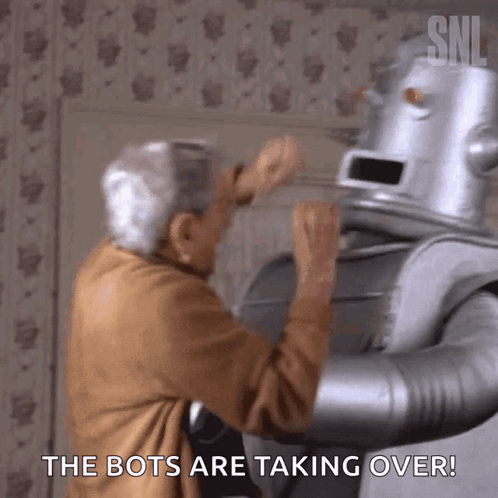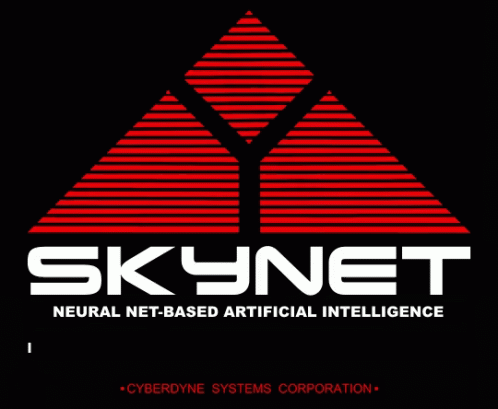The implications? You guessed it - sweeping job cuts, ruthless cost reductions, and a seismic shift in how businesses operate. Unlike DOGE, which at least claims to serve the public interest, DOCE is shaping up to be efficiency for one purpose only: profit.
Momentum isn’t always progress, especially when you always end up back where you started.
Fathom helps you escape the loop. With insight, not intuition.
The Allure of Efficiency: A Double-Edged Sword
By now, you’ve probably sick of hearing about the U.S. government’s DOGE initiative, which, at the time of writing, claims to have saved a staggering $115,000,000,000 of waste, fraud, and abuse. Proponents argue such measures are not only necessary but critical - either the U.S. government gets its financial house in order, or the looming debt crisis will have catastrophic consequences worldwide. Others aren’t convinced and see it as something far more nefarious.

Whichever side of the isle you sit on, there is no doubt that some of DOGE’s actions have struck a nerve with taxpayers struggling with a spiralling cost of living. Such as:
- 3.2 Million people claiming social security - over the age of 120!
- $620,000 slashed from an LGBTQ+ teen pregnancy prevention program aimed at transgender boys.
- $397,000 pulled from a grant designed to educate queer, trans, and BIPOC urban farmers on food justice and values-aligned markets.
- Massive public sector job losses, as entire departments have been dismantled or stripped to the bone. Reports of up to 62K job loses to date and as many as 500K by the end of the year.
For supporters, these job cuts are seen as necessary and welcome. For critics, it’s a ruthless hatchet job, leaving countless public servants as collateral damage. Given the divided political situation in the US right now, it will come as no surprise that the initiative has faced a slew of backlash and lawsuits, with accusations that efficiency has come at the cost of critical services and livelihoods.
Thankfully, we’re not here to debate DOGE, get political, or take sides. Whether you think it’s a masterstroke of fiscal responsibility or a dystopian nightmare doesn’t really matter - because what’s coming next makes DOGE look quaint.
Helping HR, talent acquisition, employer branding, and company culture professionals find careers worth smiling about.
Corporate America’s Secret Playbook: Enter DOCE
Behind closed doors, business leaders are taking notes. DOGE has sent a clear message: if the U.S. government can get away with this level of cost-cutting, what’s stopping corporations from following suit? This is something I’ve coined DOCE – The Department of Corporate Efficiency. It’s coming, it’s terrifying, and there doesn’t seem to be a whole lot anybody can do to stop it.
Unlike the government, where budgetary efficiency should benefit the taxpayer, corporate cost-cutting serves one God and one God only: profit.

And if recent history has taught us anything, it’s that when companies start sniffing out ‘efficiency opportunities,’ the real losers are always employees. The warning signs have been slapping our faces red for some time now:
- Mass layoffs disguised as “strategic realignments.”
- Jobs vanishing overnight, while CEO compensation balloons.
- Automation replacing entire teams, with little discernible investment in reskilling.
It feels like we’re already in a bad place - tech layoffs have been rampant, hiring has slowed to a crawl, and the demand for greater returns from investors seems relentless. When DOCE arrives, like the fifth horseman of the apocalypse, expect these trends to accelerate dramatically.
Why so scary? While DOGE operates (at least in part) with some public accountability and transparency, include a website of all cuts that’s updated in real time, DOCE will have no such thing. No government oversight. No checks and balances. Just a relentless drive to squeeze every possible dollar from corporate operations, no matter the human cost.
How Will DOCE Manifest?
It’s unknown exactly how DOCE will look, but you can bet your bottom dollar it’s already being worked out. Most likely, it’ll emerge as a separate function rather than being absorbed into HR or Finance, though it would certainly intersect with HR and Finance in significant ways. Unlike traditional HR, which (in theory) balances business needs with employee well-being, DOCE would operate with a singular mandate: efficiency at all costs.

Expect data-driven cost-cutting powered by AI-driven workforce analytics, aggressive automation, and a merciless culling of “redundant” roles, tools, initiatives, expenses, and niceties, all under the guise of corporate optimization. Unlike DOGE, DOCE would be unregulated and shielded from accountability, allowing companies to implement ruthless efficiency measures behind closed doors. While it may work alongside HR for legal and compliance reasons, it would likely be siloed, reporting directly to the CFO, COO, or even the CEO - ensuring profitability remains the priority over people.
The Employer Branding Quagmire
Implementing DOCE isn’t just a potential PR disaster - it’s an existential crisis for employer branding. Employers won’t just be perceived as prioritizing profit over people; they’ll be broadcasting it in neon lights.
All this at a time when:
- Trust in corporations is already at an all-time low
- Social responsibility and workplace culture are key talent drivers
- Job seekers are (soon to be “were”) demanding purpose, not just pay.
… slashing workforces and ramping up automation isn’t exactly the easiest sell. What happens when the best and brightest talent decide that working for a DOCE-run company isn’t worth it? Will these companies apologise and make a U-turn? My guess is no, no they won’t, they’ll double down on the automation and slashing.

I don’t want to sound alarmist but... Skynet anybody?
There is hope, though. While even the most skilled employer brands will struggle to spin DOCE into a positive, these newly minted employers will need employer branding more than even if they’re still to attract top quality talent amid the turmoil.
Because...
- Companies that fail to control the narrative will become pariahs in the job market.
- Organizations that handle the shift with transparency and empathy might just survive the backlash.
Unless we’re going full-Matrix and humans are steadily becoming redundant, the winners in this new reality will be those who invest in honest, strategic, and data-backed employer branding - not to sugarcoat DOCE, but to prove they’re still worth working for.

The Road Ahead: What’s Coming Next?
Like it or not, DOCE is coming. Some corporations are already trailing aggressive cost-cutting initiatives, and the moment one Fortune 500 company openly adopts the model, it whatever form it takes, expect the floodgates to open.
If the last few years have been about streamlining, the next few will be about pure, profit-driven corporate efficiency – jacked up on anabolics!
Employees? Brace yourselves.
Businesses? Tread carefully - because reputational damage isn’t as easy to fix as a balance sheet.
One thing’s for sure: whether you’re for or against DOGE, DOCE is something else entirely. And nobody - not employees, not employer brands, not even the corporations themselves - will escape its impact.
Final Thought: Will DOCE be the ultimate corporate efficiency play, or just another short-sighted cost-cutting frenzy? The answer depends on whether companies choose responsibility over ruthless profit.
Spoiler alert: history isn’t on the side of the little guy (or gal).
Takeaways
What is DOCE?
DOCE stands for the Department of Corporate Efficiency — a concept highlighting extreme corporate cost-cutting inspired by the U.S. government’s DOGE initiative.
How is DOCE different from traditional corporate functions?
Unlike HR or Finance, DOCE focuses solely on ruthless efficiency and profit maximisation, often disregarding employee well-being and organisational culture.
Why should we be concerned about DOCE?
Because it signals a future where workforce cuts, automation, and AI-driven analytics dictate business decisions — with zero accountability or transparency.
What does DOCE mean for employer branding?
A potential nightmare. Companies embracing DOCE risk becoming employer brand pariahs unless they invest heavily in honest, empathetic communication strategies.
Will DOCE replace HR or Finance?
Not entirely — it’ll likely function independently but intersect heavily with both, reporting directly to the C-suite for maximum bottom-line impact.
Is there any way to counter DOCE’s effects?
Yes — by investing in strategic, data-backed employer branding that puts transparency, trust, and talent at the forefront, even in a profit-driven world.
Is DOCE just a satire?
Not entirely. It’s a provocative lens on an emerging reality — and one that HR and employer branding leaders would be wise to start preparing for now.







